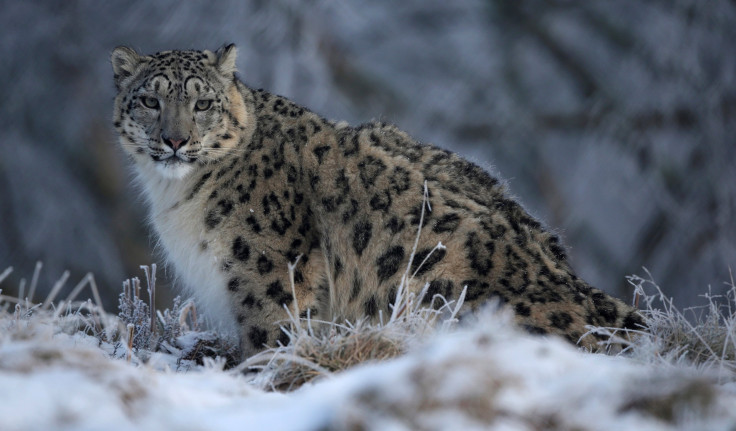COVID-19 In Animals: 3 Snow Leopards Die At Lincoln Children's Zoo
KEY POINTS
- The three snow leopards died of complications due to COVID-19
- Lincoln Children's Zoo will remain open to the public
- Snow Leopards are listed as a "vulnerable" species
Three snow leopards with COVID-19 have died at the Lincoln Children's Zoo, while two Sumatran tigers appear to be recovering from their illness. They add to the list of animals that have been affected by the disease.
The three snow leopards died due to "complications of COVID-19," the zoo announced in a Facebook post Saturday.
"Our leopards, Ranney, Everest, and Makalu, were beloved by our entire community inside and outside of the zoo," the zoo noted in the post. "This loss is truly heartbreaking, and we are all grieving together."
Apart from the three snow leopards, the zoo also began treating Sumatran tigers Axl and Kumar last month, reported AP News. According to the zoo, the two tigers appear to have made a full recovery from their condition.
Amid the heartbreaking news, the zoo will remain open and will continue following the guidelines and "take every precaution" against COVID-19 for the safety of the "animals, staff and community."
Other animals have also been impacted by COVID-19 since the pandemic began. Earlier this year, a geriatric Bengal tigress at a sanctuary tested positive for the SARS-CoV-2, the virus that causes COVID-19. Asian small-clawed otters at Georgia Aquarium also caught the said virus.
Vulnerable Snow Leopards
Snow leopards are stunning creatures, with their white coats and large black rosettes that help them blend in with the steep and rocky mountains of Asia.
"Snow leopards are perfectly adapted to the cold, barren landscape of their high-altitude home, but human threats have created an uncertain future for the cats," according to the Snow Leopard Trust.
Humans are actually among the primary predators of snow leopards. These animals face human-related threats such as hunting, habitat loss, declines in their prey species and even retaliatory killings because of human-wildlife conflict. They are also affected by the climate crisis because it also threatens their natural environment.
So far, snow leopards' conservation status is "vulnerable," which means the species is currently facing "a high risk of extinction in the wild."
"Snow leopards play a key role as a top predator, an indicator of the health of their high-altitude habitat, and, increasingly, an important indicator of the impacts of climate change on mountain environments," the World Wildlife Fund (WWF) noted. "If snow leopards thrive, so will countless other species and the largest freshwater reservoirs of the planet."

© Copyright IBTimes 2024. All rights reserved.






















